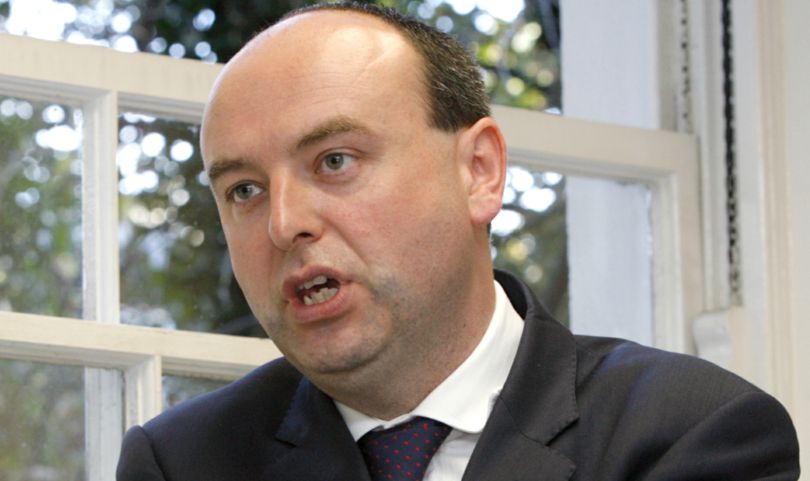Irish employers’ organisation Ibec has demanded a decisive and immediate national response to the Brexit currency shock, which it says has left many key export businesses reeling, and jobs already under threat.
The British currency has fallen from a high of €1.44 in July last year to its present level of around €1.18, most of the decline occurring since November 2015 and by around 12 cents since Brexit itself.
An Ibec survey of 450 businesses highlights the intense currency strain on exporters following the UK vote. “Business is moving quickly to manage severe competitive pressures, but an urgent, targeted national response is essential,” Ibec said in a statement.
The survey found that the negative exchange implications of the UK vote is by far the biggest concern of business. Almost half (45%) saw this as the main threat. Exporters are operating with a major competitive handicap in the British market, while domestic firms are facing the prospect of cheaper imports grabbing market share.
Fergal O'Brien (pictured) of Ibec said: “The Brexit strain is manifest and intense. Without urgent action to address competitive pressures, hundreds of millions of euro worth of exports and thousands of Irish jobs will be lost. Individual businesses have been slow to talk publicly, but the feedback from members is clear and unambiguous. Businesses and jobs are already under threat.
“This is now a full-blown currency crisis. For exporters, the speed of sterling’s decline is on a par with the 1992 currency crisis. Irish exporters to the UK are already 15% less competitive and things could get much worse. The problem demands urgent government attention.”
The key results from the Ibec survey include:
- The main concern is the sharp fall in the value of sterling.
- Exchange rate volatility, weaker investor confidence, and competitiveness against the UK are the top three challenges identified.
- Cheaper UK imports was cited as the biggest risk by one third of respondents.
- Only one in ten businesses have Brexit contingency plans in place.
- Only one in four exporters have currency hedging arrangements in place and, for many, this protection will expire over the coming weeks and months.
- A renewed focus on competitiveness was identified as the most important government policy response required.
O’Brien added: “An urgent and meaningful government response is needed to address the immediate currency crisis and longer-term competitiveness challenge that Brexit poses. The UK will be more aggressive in its tax and investment policy once outside the EU. Ireland needs to match and exceed its offering.”
Ibec said that an immediate Brexit response package should include:
- An enterprise stabilisation and employment support fund available to the worst affected firms, similar to the measures introduced following the 2008 crisis.
- An intense ongoing focus on cost competitiveness in areas such as labour costs and the minimum wage, on policy decisions that would adversely impact PSO charges on electricity; and on insurance costs.
- A concerted drive to secure exemptions to EU state aid restrictions to allow the Irish government to match grant aids which will be available to UK based manufacturers.
- A fully ‘Brexit-proofed’ Budget which will address tax competitiveness challenges against the UK and facilitate Ireland to take advantage of any FDI opportunities which will arise.
Marketing Pessimism
Meanwhile, a survey of 210 senior marketing executives by Amárach has found that one third of respondents believe that Brexit will result in a negative impact on their company turnover in 2016. Forty per cent expect a decrease in turnover in 2017.
Other findings of the Marketing Institute’s study include:
- One in five marketers have already changed their growth plans for the rest of 2016, though most haven’t.
- Among those who have already made changes, 44% are considering reducing their future headcount over the rest of 2016.
- Some 4 in 10 of those who have made changes plan to refocus their marketing activity away from the UK.
- Almost a quarter of those Irish marketing professionals who have made changes are planning to reduce their advertising spend as a result of Brexit.
Tom Trainor, chief executive of the Marketing Institute, commented: “The uncertainty created in the wake of the referendum result, combined with the fall in sterling, has already led to a number of companies relooking at their forecasts and putting a hold on some plans.” It is vital during this period that the Irish marketing community highlights the value that they offer to their organisations and how they are central to their firms’ future success”
Amárach’s Gerard O’Neill commented: “Those changing their plans are focusing primarily on reducing future employment levels in the short term and on refocusing exports away from the UK in medium term. Foreign owned companies are more likely to reduce ad spend.”








